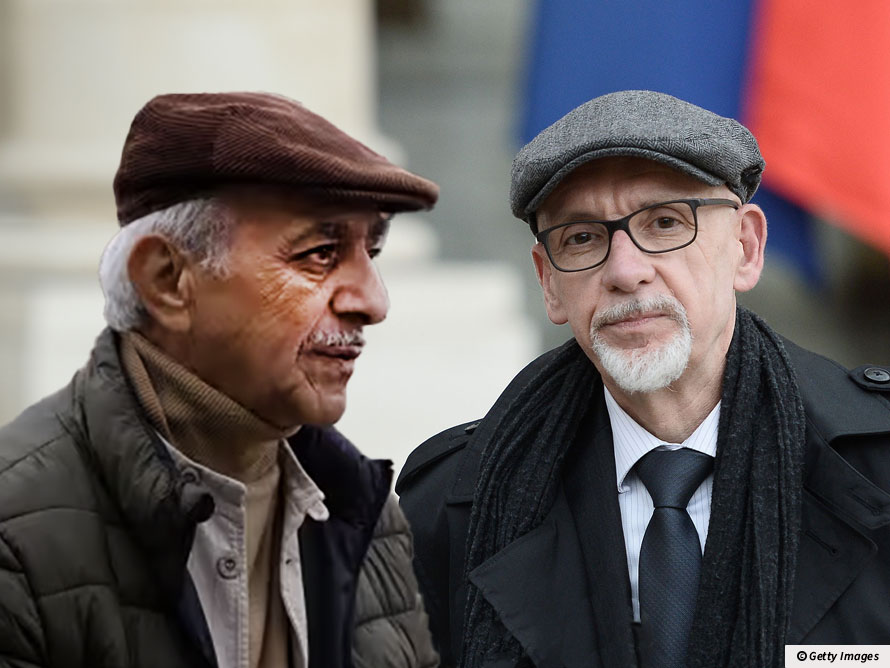Can talking stop hatred? On 13 November 2015, gunmen killed 90 people at a rock concert in Paris. Georges Salines lost his daughter, but kept his hope and gained a friend.
Incredible friendship healing Bataclan wounds
 Shared tragedy: Both Azdyne Amimour (left) and Georges Salines (right) lost a child in the 2015 attacks.
Shared tragedy: Both Azdyne Amimour (left) and Georges Salines (right) lost a child in the 2015 attacks. Glossary
Massacre - A brutal and indiscriminate slaughter.
Extremism - Holding extreme political or religious ideas.
Perpetrators - People who carried out harmful, illegal, or immoral acts.
Genocide - The annihilation of a people, either through killing of its members, or through the suppression of its culture.
Rwanda - A country in the centre of Africa. At least 500,000 people were killed in the appalling genocide of 1994.
Apartheid - A system of legally-enshrined racial discrimination and oppression which existed in South Africa from 1948 until the 1990s. It denied non-white South Africans basic human rights.
Gaza - The smaller of two Palestinian territories, home to two million people. It is located on the Mediterranean coast, bordered by Israel and Egypt.
